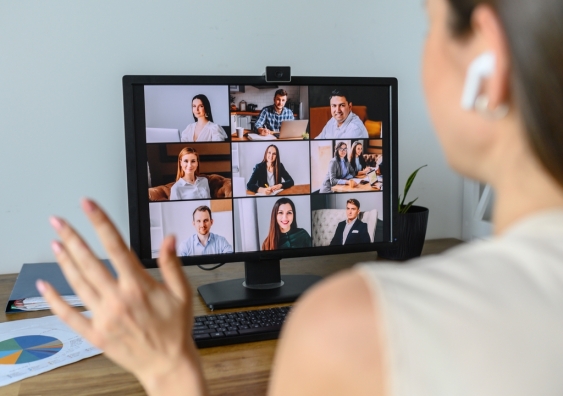What do employees really value working in the age of COVID-19?
There are a number of important lessons for leaders who are looking to maximise productivity and engagement with employees who work from home, says UNSW Business School.
There are a number of important lessons for leaders who are looking to maximise productivity and engagement with employees who work from home, says UNSW Business School.

The coronavirus pandemic has dramatically reshaped the nature of work for many organisations. Working from home has become the new norm over the past six months, as flexible working was driven by risk management and business continuity imperatives rather than as a “nice-to-have” HR initiative.
“It is very likely that the newly discovered way of working from home and virtual collaboration will stick,” says Frederik Anseel, Associate Dean of Research and Professor of Management at UNSW Business School.
“People have now experienced themselves some unmistakeable benefits such as decreased commute times, winning back time for family life, autonomy in planning their own work schedule, time for uninterrupted, focused work.
“At the same time, employers will have felt that the sky did not come tumbling down when people were working from home. They too see how productivity in some cases might actually benefit and they will also start considering if the high costs of office building are really necessary, given the current situation.”
“We are probably not going back to normal as in ‘how things were before the crisis’. We don’t need to go back there,” says Prof Anseel, who observes that societies have always seen great change after pandemics, with new routines and norms.
The workplace of the future will probably be more flexible with people jointly arranging with their employers when to work from home and when going to the workplace.
“We need to reimagine how workplaces can look like and how they best serve work and add value,” he says.
“Having people getting stuck in traffic for an hour to arrive at a workplace where they do exactly the same work as they could do at home but much more efficiently, needs to change.
“This has been an eye-opener for a lot of companies, but also for managers who were suspicious that it couldn’t be done. It can and it should.”
Some managers were reluctant to have people working at home because there is less scope to control them. However, Prof Anseel affirms that control has never worked to motivate people or make them more efficient.
“All research shows that trust and autonomy are key determinants of engagement and productivity,” he says.
“In the past, I heard a lot of ‘trust is good; control is better’. That common belief is contradicted by all scientific evidence we have. In reimagining the workplace, we need to ask ourselves: how does this physical space, us coming together on a regular basis, add value to the company and to the lives of those involved?”
Prof Anseel and Kevin Kniffin, Assistant Professor of Organisational Behavior and Leadership at Cornell University, recently explored these issues in a wide-ranging global study which examined how COVID-19 will change the workplace for good.
The study, COVID-19 and the Workplace: Implications, Issues, and Insights for Future Research and Action, opens in a new window presents a broad review of prior research rooted in organisational psychology to make sense of COVID-19’s implications for employees, teams and organisations.
Prof Anseel observes that people have different individual needs, values and aspirations – so the future will be one in which workplaces are co-designed.
“We find in our research that this type of individualisation (which we call i-deals, idiosyncratic deals) actually benefits company performance (measured financially in ROI), because people feel more supported and identify more with the company and in turn want to go the extra mile, exchange more information, seek more collaboration with colleagues,” he says.
This is an important finding, as many organisations believe that fairness means that everyone is treated in exactly the same way.
“Our study shows that having a set of standardised uniform supportive HR practices is important, but when these are in place, some individual flexibility and individualised agreements leads to more collaboration, innovation and performance,” says Prof Anseel – who points out that the work environment will not die.
It is still important for people to feel a sense of belonging, identity and purpose in what they’re doing. And for these things to have their effects, Prof Anseel says, people will need to be able to regularly meet in person.
“That does not mean that everyone needs to come to the office all day, but teams can arrange days that are appropriate for meetings, brainstorms, social gatherings (e.g., every Thursday and Friday the whole team comes physically to the co-working space),” he says.